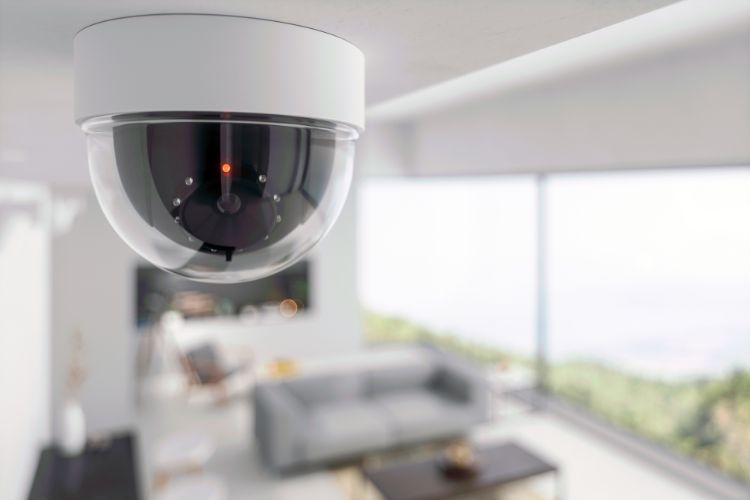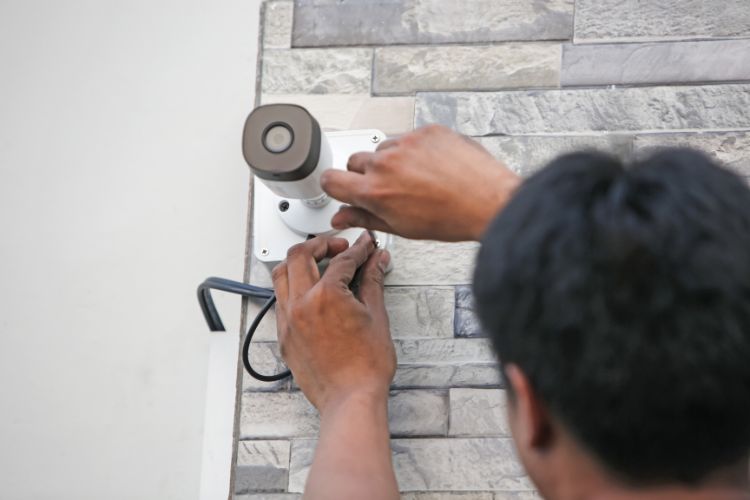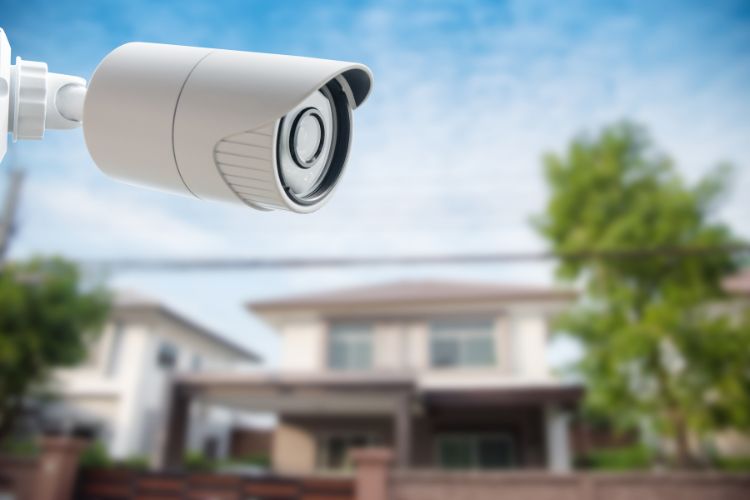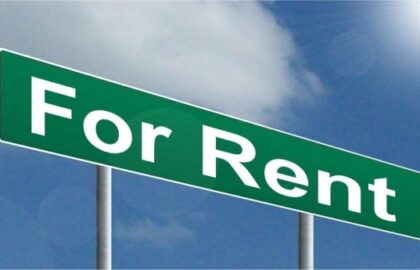
Many tenants consider setting up camera surveillance on their rental properties to improve security and safety.
However, as different states often have variations in their tenancy laws, you need to consider the regulations within the area you’re staying. So, can tenants install security cameras in Qld?
This article discusses the legality of adding a security camera to a property as a renter in Queensland. We’re explaining the related precautions, permissions, and restrictions while shedding light on the landlords’ position.
Is It Legal for Tenants To Install Security Cameras in Qld?
This question is quite common, especially if you’re a new lodger unfamiliar with what you can legally do during a tenancy, or a landlord still learning about landlord-tenant rights/obligations involved in property management.
In short, the answer is yes; a tenant can legally install security cameras in the rental properties in Qld. But there are a few exceptions and specific rules to follow.
This goes in line with the information provided by the State of Queensland RTA (Residential Tenancies Authority), where tenants are allowed to add fixtures and make structural changes.
It’s also backed up by the Queensland OIC (Office of the Information Commissioner), which addresses the use of residential video surveillance cameras as an element of the public’s privacy rights and responsibilities.
How Are Tenants Allowed To Install Camera Surveillance in Qld?

Adding fixtures is something tenants can do with the property. Fixtures are defined as items that you install in, or attach to, the rental property. Examples of such objects include locks, air conditioners, satellite dishes, cable TV connections, and TV antennas.
Since security cameras are devices that you install in or attach to the property, they’re classified as fixtures and are subject to the same rules.
With the established possibility of installing camera surveillance in Qld rental properties, let’s take a look at the finer details that make the situation entirely legal:
- Keep it public: Video recording of people has to be in public places only, and never in locations where privacy is expected.
- Mind the installation angle: The position of the security camera should have as minimal interference as possible with neighbouring properties.
- Avoid damage to the property: The installation process shouldn’t compromise the structural integrity of the property. As such, it’s generally advised to refrain from choosing highly elaborate wired camera surveillance systems that call for significant modifications; landlords or property managers are obligated to accept reasonable modifications.
- Ensure you’re part of recorded conversations: You’re allowed to record spoken conversations as long as you’re involved in them. For example, if you’re talking to someone face to face, if you’re talking to someone on the phone, if you’re talking through a speakerphone, or if you’re part of a group discussion.
Do Tenants Need Permission To Install Security Cameras?
According to the State of Queensland RTA, if a tenant wishes to install a fixture such as a security camera, they must receive approval from the property owner or the property manager. This is similar to when a tenant wishes to rent out the property.
As such, tenants are expected to submit a request to get the landlord or the property manager to agree. Requests for installing a security camera on the property must be in writing and the agreement should include:
- A description: A thorough description of the security camera(s), such as its type, model, specs, and installation method.
- Installation conditions: Add any agreed-upon limitations or terms concerning the installation, such as the number of cameras and type of recording.
- Removal details: State whether the tenant can remove the security camera(s) and specify related details such as removal method and timing.
- If removal is agreed upon, the agreement should also cover what would happen in case of damage during the process (how repairs will be done and the possibility of paying compensation).
- If removal isn’t agreed upon, the document should specify a compensation amount due to the tenant and equivalent to the value of improvement added to the property.
What if the Tenant Doesn’t Get Written Approval from the Property Owner or Manager?
If a tenant doesn’t request approval and proceeds to install a security camera without written permission from the landlord or property manager, the situation can play out in one of two scenarios:
- The property owner/manager keeps the surveillance camera and considers it an enhancement to the property.
- The property owner/manager asks the tenant to revert the property to its original condition. In this case, the tenant has to cover all the associated costs.
Can the Property Owner or Manager Refuse to Provide Permission?
The property owner or manager is obliged to approve a tenant’s request to install a security camera as long as they have a reasonable argument.
That said, if the landlord or property manager has a compelling justification as to why the tenant can’t set up camera surveillance on the property, then they have a right to decline to provide permission. For example, if the installation process would result in too significant damage to the property.
Is Permission Required From Parties Other Than the Property Owner or Manager?
In addition to requesting permission to install security cameras from the landlord or property manager, a tenant may have to ask for approval from the body corporate.
This may be the case if the rental property is part of a townhouse, unit, apartment, or any other type of community title scheme.
The reason why permission from the body corporate is necessary is that installing a security camera on the rental property means adding it to the exterior of the building, ceilings, walls, or balcony. Such a change affects the appearance of the lot, and consequently, the complex.
When Is It Illegal for a Tenant To Install Security Cameras?

According to the Queensland OIC, some laws may apply to tenants installing camera surveillance regardless of the reason they’re doing it. Failing to comply with these rules may result in prosecution.
To clarify, here are the instances when the installation of security cameras by a tenant would be considered illegal:
- If the security camera(s) captures video footage of individuals without their consent in places where privacy is generally expected. Examples of such places include changing rooms, bathrooms, and bedrooms. Doing so is an offence under section 227A of the Queensland Criminal Code.
- If the security camera(s) is positioned at an angle that captures the neighbours’ pools or backyards, then you’re in breach of the Queensland Criminal Code and may be subject to prosecution.
- Directing your surveillance camera away from your neighbours’ space and informing them about the presence of cameras ensures that everyone is comfortable and keeps them from escalating the situation to the QPS (Queensland Police Service)
- If the security camera(s) don’t comply with the regulations set by the body corporate for exterior fixture installation. If it’s found that the addition of surveillance cameras results in a nuisance to common property, the tenant may be in breach of the law.
- If the security camera(s) records audio of a conversation that the owner of the camera(s) is not a part of. According to the IoP (Invasion of Privacy Act), this is an offence.
Following up on the last point, if you audio record conversations that you’re involved in, the IoP Act restricts your use of such recording by prohibiting their publication or communication except under specific conditions, including:
- Legal settings, such as court proceedings.
- When the recipient was a participant in the conversation.
- When it’s necessary for compelling public interest.
- When the person who made the recording requires it to protect their interest within reasonable necessity.
Are Landlords Legally Permitted To Install Security Cameras in the Rental Property?
Similar to tenants, landlords are allowed to install surveillance cameras in their rental properties. Also as in the case with tenants, landlords must be mindful of the location(s) where the cameras are set up.
The exterior of the building, apartment, or house is a legal placement for security cameras. A camera outside the property’s access gate, garage, or entrance is also legal.
It’s illegal, however, for the landlord to install security cameras inside your home. This is a direct violation of privacy and should be reported to local authorities.
Conclusion
Installing surveillance cameras in rental properties can offer safety and security benefits to tenants as well as landlords.
That said, deciding to set up security cameras comes with a set of limitations and considerations that both parties should keep in mind. The first on the list should be the legality of the action in the state where the property is located.
You can tell by now that tenants in Queensland can install security cameras in rental properties. However, they need to acquire a written agreement from the landlord or property manager and adhere to the relevant state laws.








